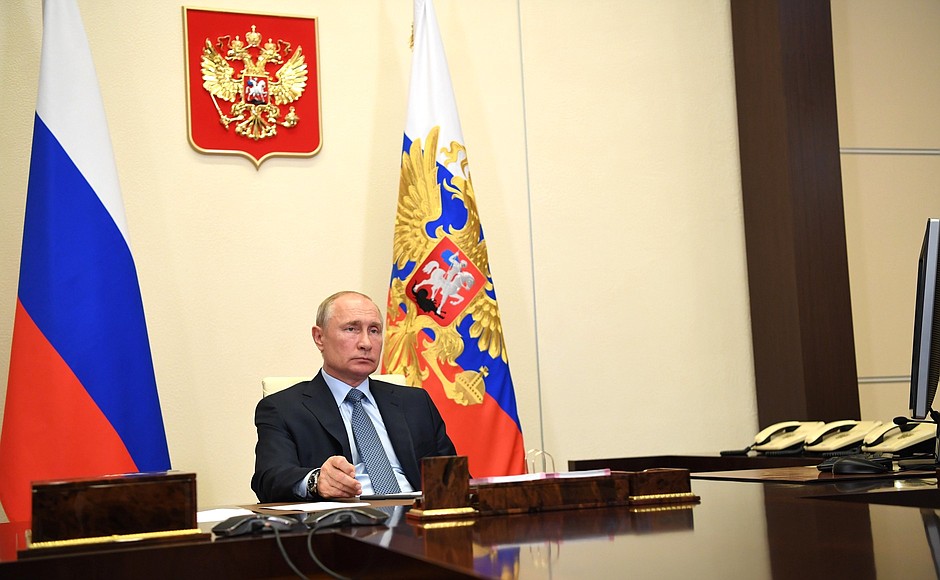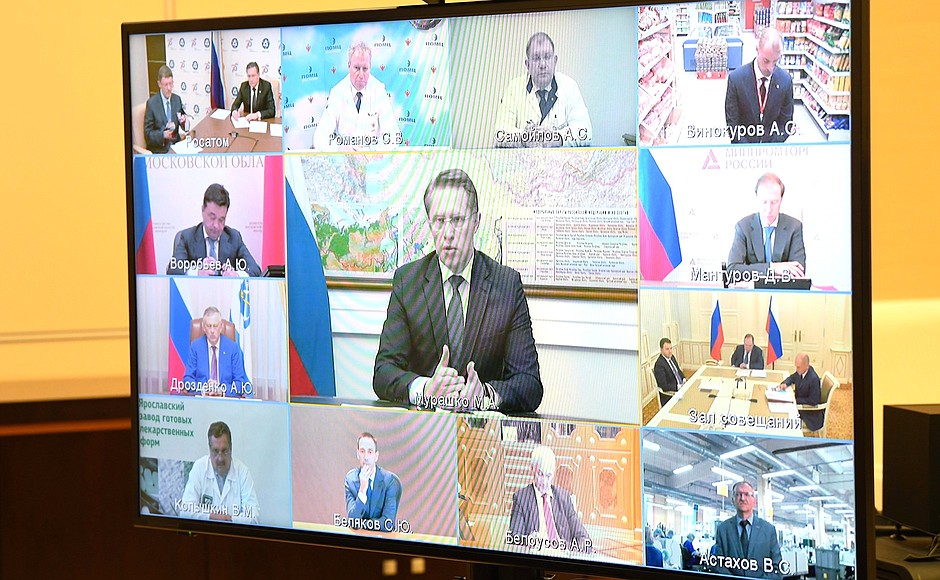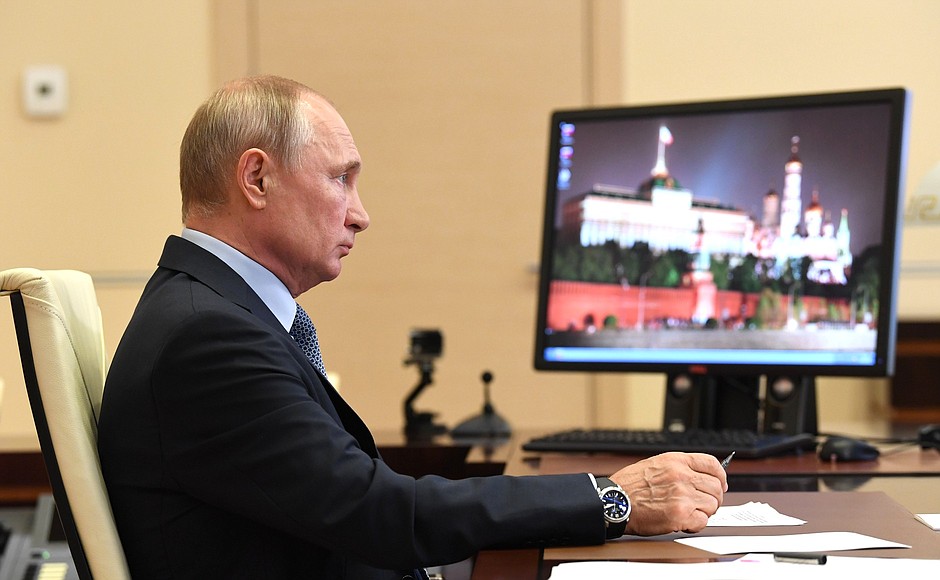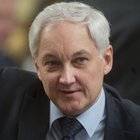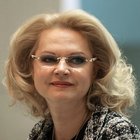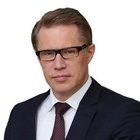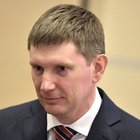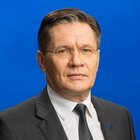Attending the meeting were Chief of Staff of the Presidential Executive Office Anton Vaino, First Deputy Prime Minister Andrei Belousov, First Deputy Chief of Staff of the Presidential Executive Office Sergei Kiriyenko, Deputy Prime Minister Tatyana Golikova, Presidential Aide Maxim Oreshkin, Minister of Industry and Trade Denis Manturov, Minister of Healthcare Mikhail Murashko, Minister of Economic Development Maxim Reshetnikov, Governors of Leningrad, Moscow, Nizhny Novgorod and Yaroslavl regions, Head of the Federal Medical-Biological Agency Veronika Skvortsova, Director General of State Atomic Energy Corporation Rosatom Alexei Likhachev, as well as top managers of companies and organisations in various economic sectors.
* * *
President of Russia Vladimir Putin: Good afternoon, colleagues.
Let us begin.
As you remember, earlier this week, we reviewed the package of measures that are being implemented to support the public and businesses. As we agreed, we will continue to monitor these issues. It is particularly important right now as the economy is recovering and gradually opening up after lockdown.
At the same time, there are a great number of organisations and companies that not only never stopped operating during these difficult months but, on the contrary, mobilised all their resources, along with hospitals, outpatient clinics and ambulance services. They remained on the coronavirus frontline, so to speak, supporting the economy and industries, maintaining the reliable operation of all vital systems, providing people with food, personal protection equipment, medication, and increasing supplies of all the essential products required for our doctors and nurses to save their patients and stay safe.
Top managers of these companies and organisations are taking part in this meeting today. I propose that we analyse your experience in tackling complicated and unconventional tasks concerning technology, management and operations. Most importantly, we will discuss how we can use this new and unique experience and new competences in the future, to address the long-term structural objectives of our economy, in order to boost efficiency and reserves across all key areas of development.
In this context, I would like to emphasise once again that we put up a very good fight against this epidemic (we can say it at this point), thanks to the consolidated efforts of our society, our healthcare system and the essential sectors of the national economy. Once again, this efficient response was due to the fact that to the maximum extent we could rely on our own technological and production basis – our life support system.
Overall, our economy, all of its key links and critical infrastructure, including the next generation infrastructure – digital and telecommunications – have proved that they can promptly adapt to serious challenges, sustain heavy loads and work uninterruptedly in difficult conditions.
This also relates to the sectors that make a direct contribution to counteracting the coronavirus. Despite certain objective difficulties and technological setbacks, they still managed to show flexibility, responsibility, the ability to readjust and reequip production facilities and promptly reached production rates that matched the emergency situation.
In this regard, I would like to thank all the employees, engineers, workers and managers who during these hard times continued to work, ensured operations of the critical services and provided the result that the citizens, the healthcare system and the entire country required.
Thus, in a matter of just several weeks, we managed to increase the production of PPE manyfold (without an emergency, we never need so much), and to establish the production of other crucial goods, equipment and electronics.
The increased production of necessary medicines was also established promptly. In some cases, the growth in April and May was a hundred-fold. New medicine was developed and delivered to hospitals in record-breaking time.
Producers of food, primary commodities and related logistics and transport companies, retail networks and e-commerce enterprises worked hard and kept pushing their limits. As a result, the goods were delivered round the clock to shops and to people’s homes. At the same time we managed to prevent price hikes, detected and eliminated any temporary deficit of some goods and, most importantly, not because of some administrative orders and urges, but on the basis of transparent market mechanisms.
And, of course, I would like to thank agricultural workers who provided uninterrupted deliveries of food, performed the job of spring sowing in the difficult epidemiological conditions thus laying the base of the future harvest. Yesterday we discussed this with the Minister of Agriculture, who said that the future crops have a good outlook.
I would add and also emphasize that in these extreme conditions, when time was most valuable for us, many enterprises in industry, agriculture and other sectors adjusted their approaches to organising business and looked at routine processes in a new way, giving up the bulky, awkward and obsolete, and quickly switched over to new solutions, increasing efficiency as a result.
Important groundwork for this was provided by the approaches tested as part of the national project Labour Productivity and Employment Support, in particular, in eliminating inefficient production processes and adopting so-called cost-conscious production methods.
For example, Rosatom and the Federal Biomedical Agency jointly implemented a number of projects to raise the efficiency of medical institutions. They set up a system “from a patient’s call for an ambulance to the first doctor’s prescription in the hospital” in Moscow, St Petersburg, Nizhny Novgorod and Belgorod. The system cut the time to a patient’s actual medical treatment considerably.
Another example. Starting in March, experts at the Federal Competence Center found some reserves for increasing work productivity at 10 companies engaged in the manufacture of personal protective equipment, medical equipment and medicines, partly thanks to cutting the equipment makers’ downtime and better work-place organisation. Many modern enterprises have also adopted these methods.
I know it required not only professionalism, but also personal courage from engineers and experts. Now I will tell you why: they worked side by side with doctors at outpatient clinics, hospitals, ambulance service, intensive care units and CT units, and if necessary, they went into the “red zone.” Unfortunately, many of them did catch the coronavirus, but have now recovered and returned to work. I want to convey my sincere gratitude to them for their work.
Today, I want to hear the opinions of companies and medical institutions on how this work proceeded at that difficult time, including what the cost-conscious methods that I mentioned brought us and what other changes proved effective that we should apply on a broader scale.
Let us get down to work.
<…>
Vladimir Putin: Colleagues, I would like to say a few things about our discussion today.
Thank you very much for your proposals, for the story of how your work went. Everything that we talked about today once again confirms that our economy and our country as a whole has the capacity and successful models for a real and significant increase in labour productivity and efficiency in all areas.
But I think the most important thing is that this situation brought all of us together. This is a real fact, it let us, as I have said many times, overcome this situation with minimal loss.
We see that thanks to the new approaches that you and your colleagues introduced, the time to medical treatment for coronavirus patients was decreased significantly, several times over in some cases. As already mentioned, the production of personal protective gear, medical equipment and medicines has multiplied. And these are not just statistics or dry performance indicators; this is about maintaining health and saving human lives.
I believe that the practices you have developed, which have brought about increased labour productivity quickly and without significant costs, should be used everywhere. I repeat, there is room for such growth everywhere throughout the country.
It is important that this not only results in technical improvement but also changes the attitude of employees towards their work. The culture of production and labour itself is changes, which means that the competitiveness of the whole country increases. For our long-term development, this is extremely important.
What I would like to draw attention to: we are now talking about positive trends and positive examples. But we should not forget that there are still some problems and not everything is as good as we would like it to be, and not everywhere. People sometimes face problems that they cannot solve quickly and effectively. But what we spoke about today convinces me that we can overcome all these difficulties, that we are on the right track. We just need to use the positive practices you spoke about today.
Once again, I would like to thank you, your colleagues and all your employees. In general, everyone who has done everything during these difficult months and weeks so life can continue at the proper level, I want to thank you for your hard work, courage and dedication. Thank you all very much.
We will definitely sum up everything we spoke about today and take into account in our practical work for the future. Thank you.
